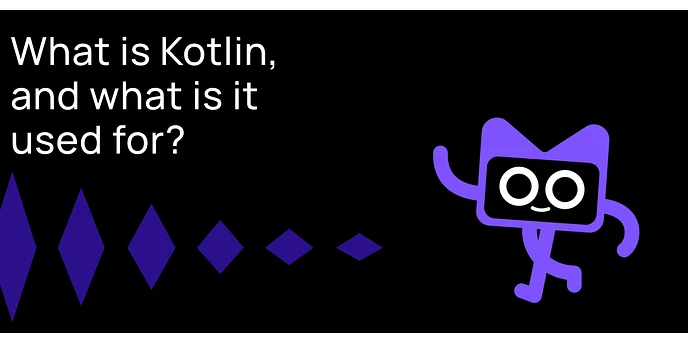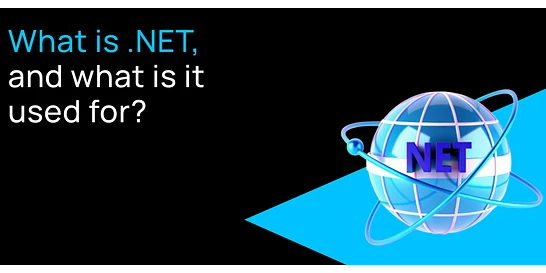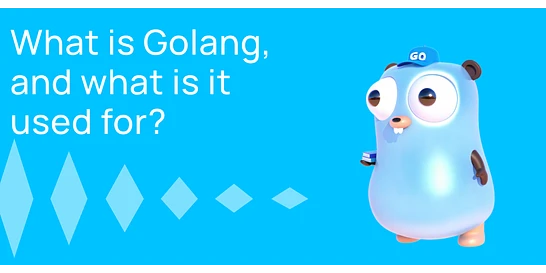What is Kotlin, and What is It Used For?

Introduction
Kotlin is a programming language developed by JetBrains and officially released in 2011. It was designed to be fully compatible with Java while improving developer productivity with a more concise and expressive syntax. Since Google announced official support for Kotlin in 2017, it has become the preferred language for Android development. As of 2024, Kotlin ranks among the top 25 most popular programming languages, according to the TIOBE index.
Also interesting:
Learn Python with our free course!!
Why Choose Kotlin for Android Development?
Kotlin is widely regarded as the go-to language for Android app development. When choosing between Java and Kotlin, many developers prefer Kotlin due to its modern features and ability to address Java’s limitations. Key advantages include:
- Conciseness – Kotlin allows developers to write significantly less boilerplate code compared to Java. Tasks that previously required multiple lines of code in Java can often be done in just a few lines with Kotlin while maintaining readability and logical clarity.
- Seamless Java Integration – Kotlin runs on the Java Virtual Machine (JVM) and is fully compatible with existing Java libraries, frameworks, and tools, making it easy for developers to transition from Java.
- Null Safety – Kotlin helps eliminate NullPointerExceptions by incorporating built-in null safety mechanisms, ensuring safer and more stable code.
- Extension Functions – Kotlin allows developers to extend existing classes with new functions without modifying their source code, making applications more modular and maintainable.
- Coroutines for Asynchronous Programming – Kotlin’s coroutines provide a lightweight and efficient way to handle asynchronous tasks, improving application performance and responsiveness.
Where is Kotlin Used?
Kotlin is a versatile language used across multiple domains beyond Android development. Some of its key applications include:
1. Mobile Development
Since being officially recognized by Google in 2019, Kotlin has become the standard language for Android development. Apps built with Kotlin offer high performance, stability, and maintainability. Additionally, Kotlin is widely used in cross-platform mobile development with frameworks like Kotlin Multiplatform, allowing developers to share code between Android and iOS.
2. Web Development
Kotlin is also gaining traction in server-side web development. Thanks to its Java interoperability, it works seamlessly with popular frameworks such as Spring Boot. Additionally, the Kotlin-native Ktor framework is designed specifically for building modern web applications.
3. Frontend and Scientific Computing
Kotlin can compile to JavaScript, making it suitable for frontend development. In scientific computing, Kotlin is supported in Jupyter Notebook and provides robust tools for data analysis and machine learning, integrating seamlessly with Java-based libraries.
Read also:
What is .NET, and What is It Used For?
4. Enterprise Solutions
Large-scale companies such as Netflix, Pinterest, and Trello have adopted Kotlin for backend and business applications. Its reliability, simplicity, and powerful features make it ideal for enterprise-level software development.
Kotlin Development Environments
Several integrated development environments (IDEs) support Kotlin, each catering to different development needs:
- IntelliJ IDEA – The official IDE from JetBrains, offering advanced Kotlin support, refactoring tools, and seamless integration with dependency management systems.
- Android Studio – The official IDE for Android development with full Kotlin support, featuring visual interface editing, an Android emulator, and performance analysis tools.
- Eclipse – A Java-focused IDE with Kotlin plugin support, though lacking some advanced features found in IntelliJ IDEA and Android Studio.
- Visual Studio Code – A lightweight text editor that supports Kotlin via plugins, suitable for smaller projects and scripting tasks.
For larger and more complex projects, IntelliJ IDEA and Android Studio remain the best choices, while text editors like VS Code can be used for quick prototyping.
Basics of Kotlin Syntax
Kotlin's syntax is intuitive and designed to improve productivity. Here are some key concepts:
Variable Declaration
Kotlin uses two keywords for declaring variables:
Kotlin also supports type inference, allowing you to omit explicit type declarations:
Read also:
What is C++ Programming Language?
Functions
Function declarations in Kotlin begin with the fun keyword:
For single-expression functions, Kotlin allows a more concise syntax:
Conditionals and Loops
Kotlin simplifies conditional expressions and supports standard loops:
Example of a for loop:
Looping through a collection:
Null Safety
Kotlin eliminates null pointer errors using safe calls:
Classes and Objects
Kotlin simplifies class declarations:
Example of object creation and usage:
Extension Functions
Kotlin allows adding functions to existing classes:
Coroutines for Asynchronous Programming
Coroutines make handling asynchronous tasks more efficient:
Conclusion
Kotlin is a modern, highly versatile programming language primarily used for Android development, but also widely adopted in web, backend, and enterprise applications. Its conciseness, safety, and support from major corporations make it a powerful choice for developers. As the Kotlin ecosystem continues to grow, its popularity and use cases are set to expand even further.
Валерия Белякова
a year ago

What is .NET, and What is It Used For?
Discover Microsoft’s .NET platform for building web applications, games, cloud solutions, and IoT projects. Learn about its key benefits, supported programming languages, and real-world applications.
a year ago
0
~time.minutes

What is Golang, and What is It Used For?
Discover what Golang is, how it was created, its key applications, advantages, and code examples, as well as its relationship to the C programming language. A beginner-friendly overview.
a year ago
2
~time.minutes